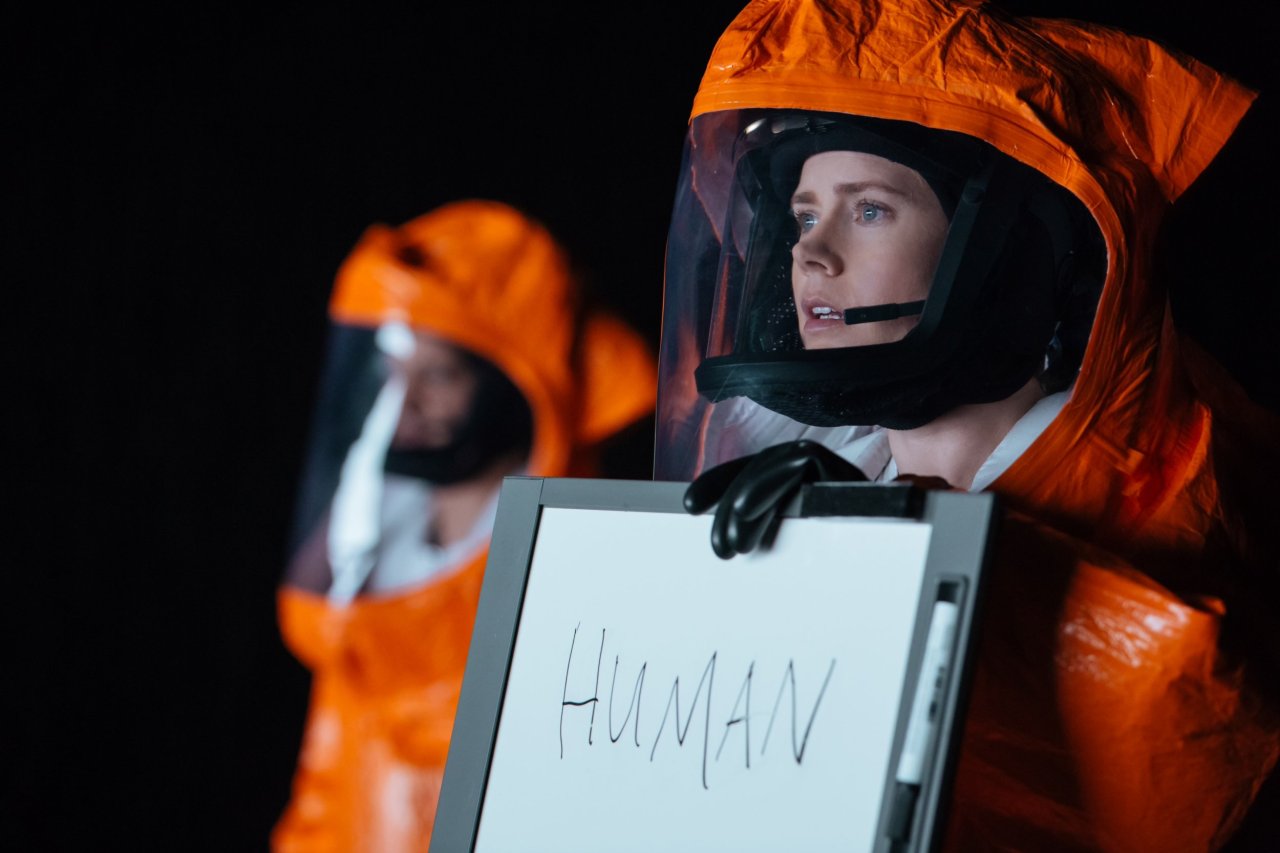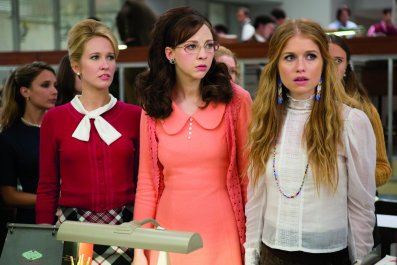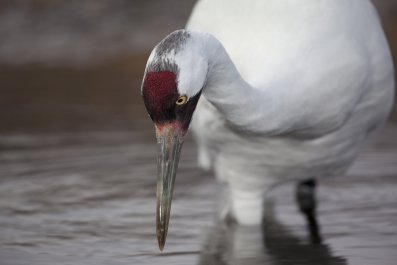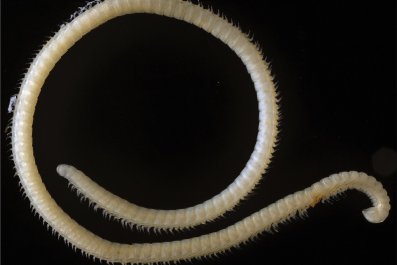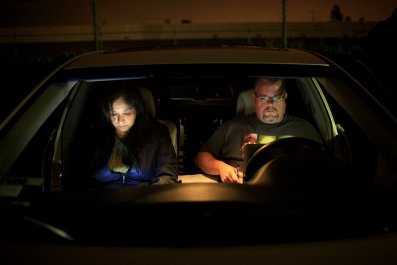Denis Villeneuve's Arrival is this year's big, somber, confusing space epic. Audiences who have managed to regain their senses after Christopher Nolan's Interstellar can happily re-enter the movie theater and have their brains whisked like scrambled eggs once again.
This one kicks off with aliens parking their spaceships in 12 different locations around the globe, including the U.S., Russia, China and Pakistan. The craft—elliptical in design, like long pebbles or bisected eggs—just hover, erect as Easter Island statues, wreathed in cloud and fog; up close, they have the texture of pumice. One of the more immediately pleasing aspects of the film is such marriages of high- and low-tech, the special-effects whizzes concocting a series of tones and textures that are more Stone Age than space-age. If the bottom ever dropped out of the intergalactic travel business, these ships could easily repurpose as giant loofahs.
Why are they here, in fact? The task of finding out falls to Louise Banks (Amy Adams), a linguistics professor whose class is cut short by news of the ships' arrival—and by the appearance in her office of an army colonel, played by Forest Whitaker. Whitaker mumbles his lines in the same croaky whisper he uses when appearing in any movie these days: He's more alien than the aliens.
A helicopter whisks Louise to a vast green meadow in Montana, where one of the ships waits. Donning puffy orange protective suits, she and her colleagues are soon probing its dark recesses, listening to sounds somewhere between whale song and a tidal wash, examining the inky hieroglyphs that the aliens squirt from their tentacles. These form beautiful plumes, like midair Rorschach tests or possibly ideas for the new Sigur Rós album cover.
The soundtrack is actually by Sigur Rós's fellow Icelander, Jóhann Jóhannsson, who has scored most of Villeneuve's films, including 2013's Prisoners and last year's superb Sicario; by now, their collaboration is seamless. It's hard to know, as a series of primordial burps and rumbles rattle your diaphragm, where soundtrack ends and sound design begins.
As Louise is led away from her first contact with the aliens, her trembling fingers come as no surprise; the film is very good on the physiology of first contact. For all its borrowings—most notably and perhaps inescapably from Steven Spielberg's Close Encounters of the Third Kind —this is the first movie to suggest a close encounter might leave you with post-traumatic stress disorder.
Arrival is good news for Adams-watchers and makes up for last week's Nocturnal Animals, an object lesson in how not to use her. From Junebug, through Disney's Enchanted to Paul Thomas Anderson's The Master, Adams has been a true believer with hints of Pollyanna, practically born to accept there are fairies at the bottom of the garden, at her best when keeping faith in a sea of doubting Thomases. Here, she gets one great scene in which she uses the Sapir-Whorf hypothesis—which holds that language dictates our reality—to show the binary friend-or-foe thinking underpinning the military's response to the aliens, taking apart the sentence "What is your purpose on Earth?" piece by piece. Such was the ingenious Chomskyan conceit embedded in the Ted Chiang short story on which the movie is based: The biggest barrier to intergalactic friendship is going to be not convolutions of space-time, but conjugating verbs.
If you're going to get sniffy about friend-or-foe binarism, though—a staple of alien-landing movies at least since The Day the Earth Stood Still —it might be a good idea not to cleave to that well-rehearsed plotline as closely as Villeneuve does, with China getting antsy, the U.S. military growing trigger-happy and Adams pleading for more time to prove they come in peace. As is traditional in this genre, the final reel surpasses human understanding—something to do with Sapir-Whorf, our understanding of space-time, and Louise's daughter, long presumed dead. What is it with sci-fi and lost children? Interstellar, Zemeckis's Contact and Spielberg's Close Encounters, even Kubrick's 2001: A Space Odyssey —all chose to view the farthest reach of space as one vast orphanage for mankind's inner child.
Arrival doesn't withstand nearly as much intellectual scrutiny as it thinks it deserves, but you should still go see—and hear and feel—it. Villeneuve is a pre-eminent sculptor of sound and image, making audio-visual environments that swallow you whole and stay with you long after they are over, like vibrations in a tuning fork. Arrival is grand, technically marvelous, solemn, spooky, somewhat unbelievable and sometimes unfathomable. Who is to say alien visitation will be any different?
Arrival is out now; worldwide releases continue to January 12



